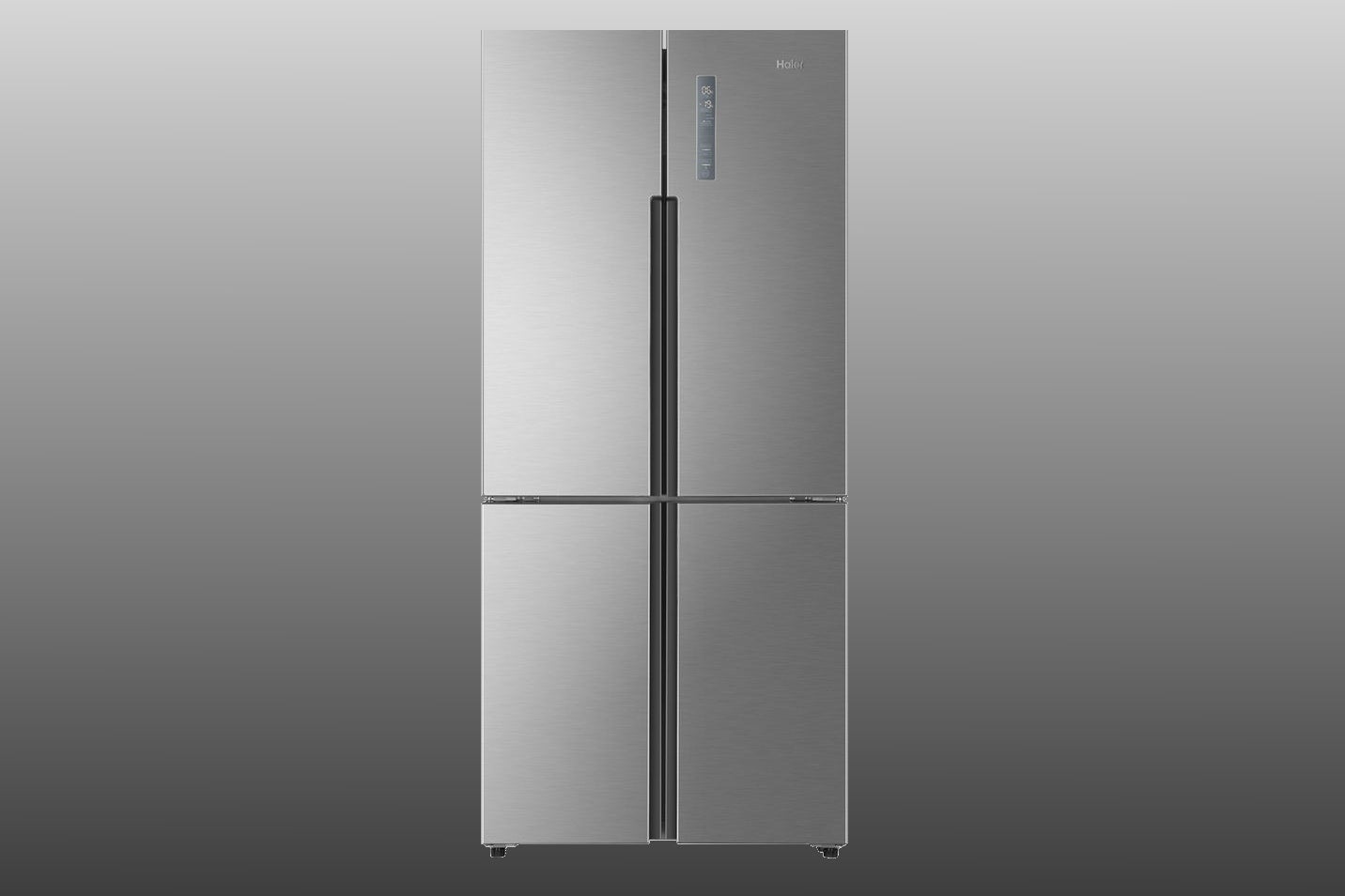EcoFlow Glacier Review
Keep your drinks and food cold no matter where you go.
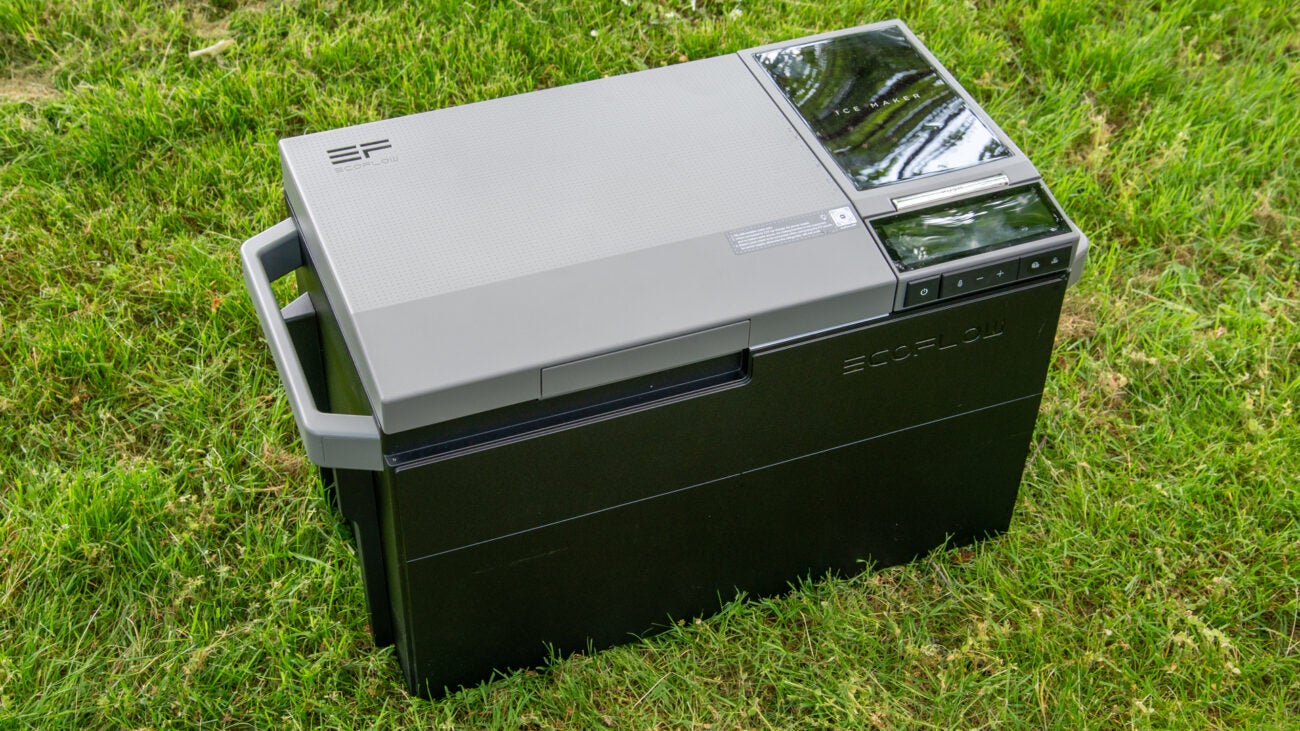
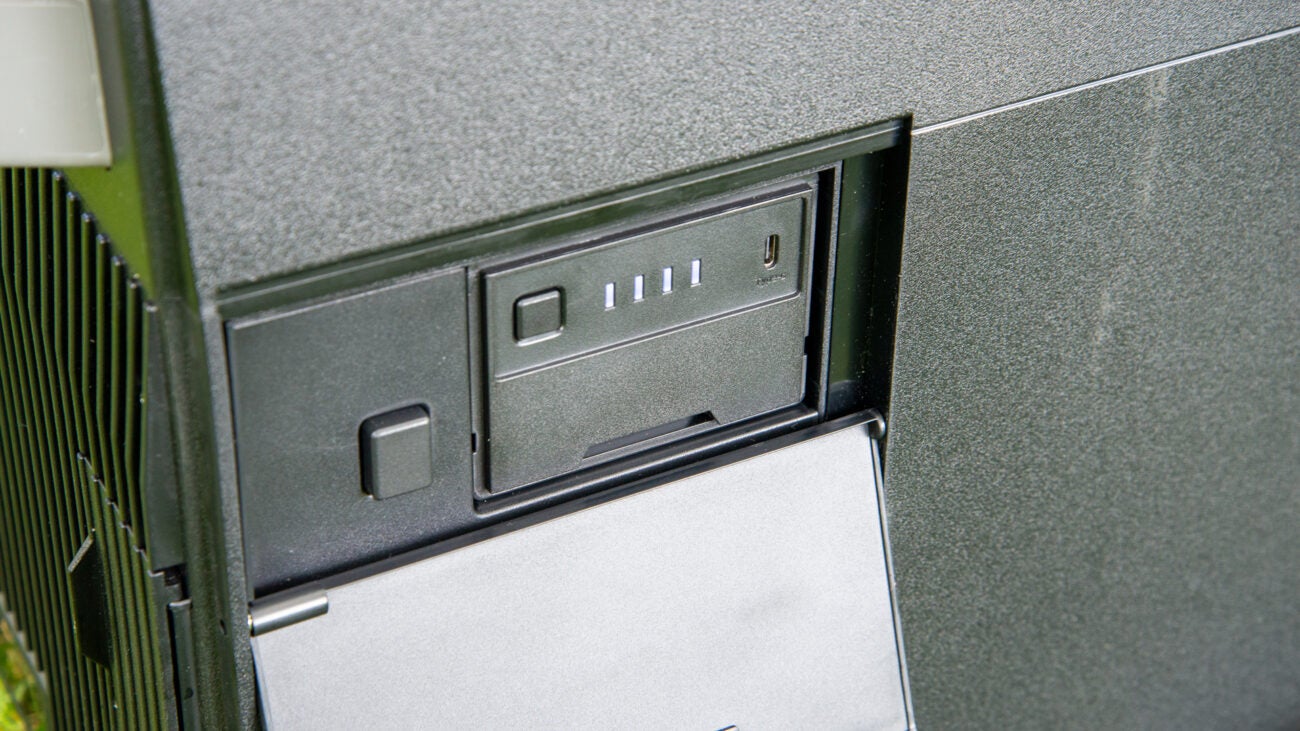
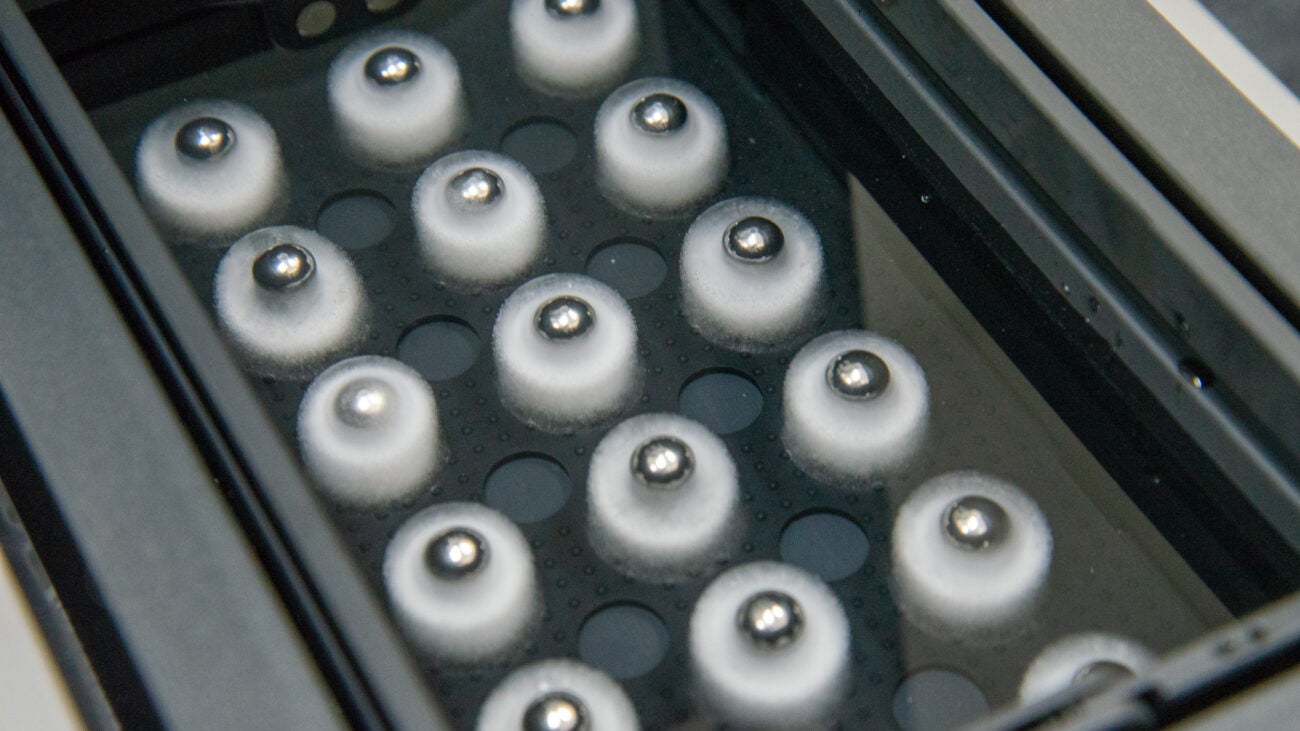
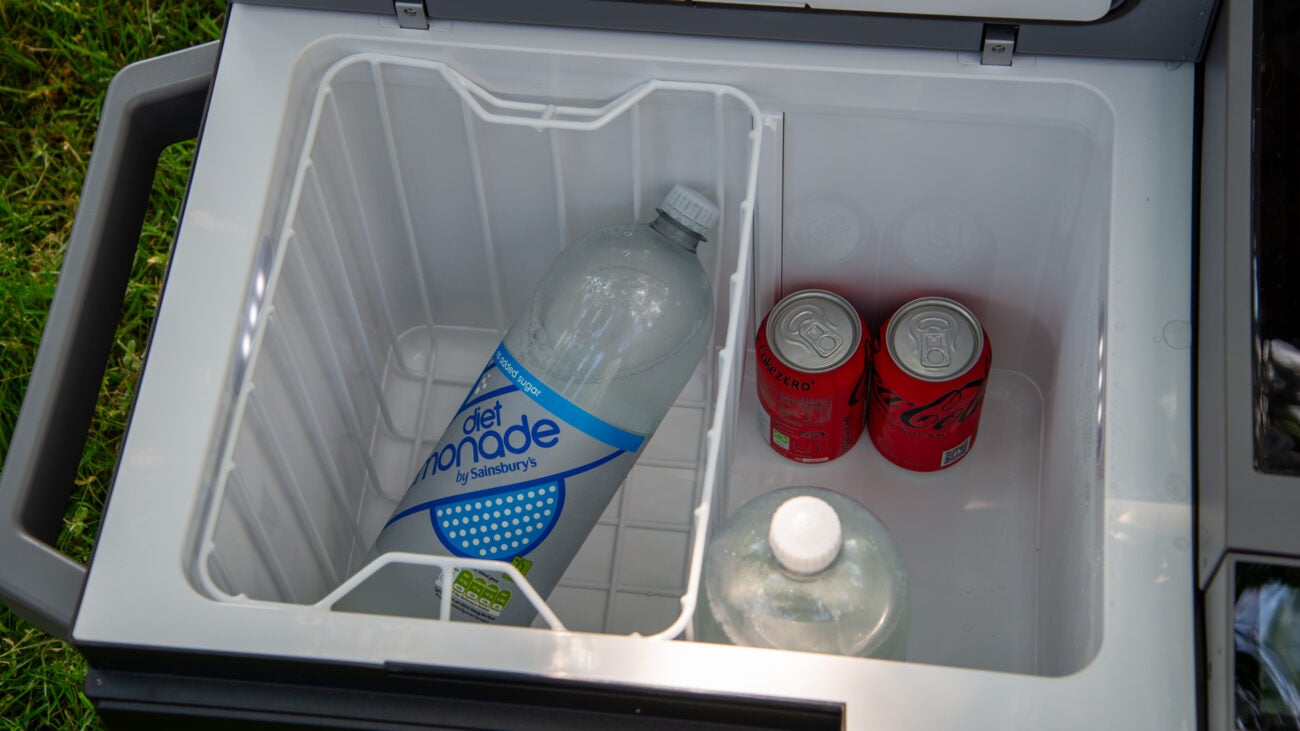
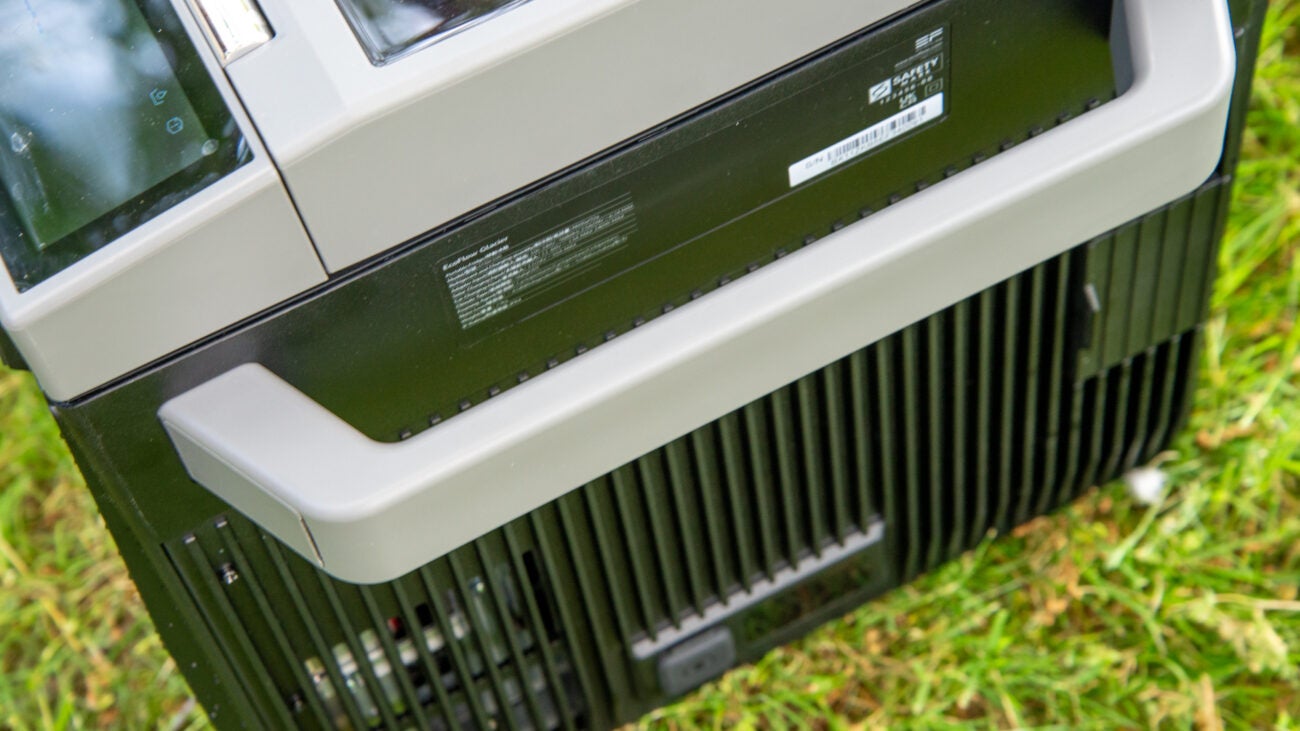
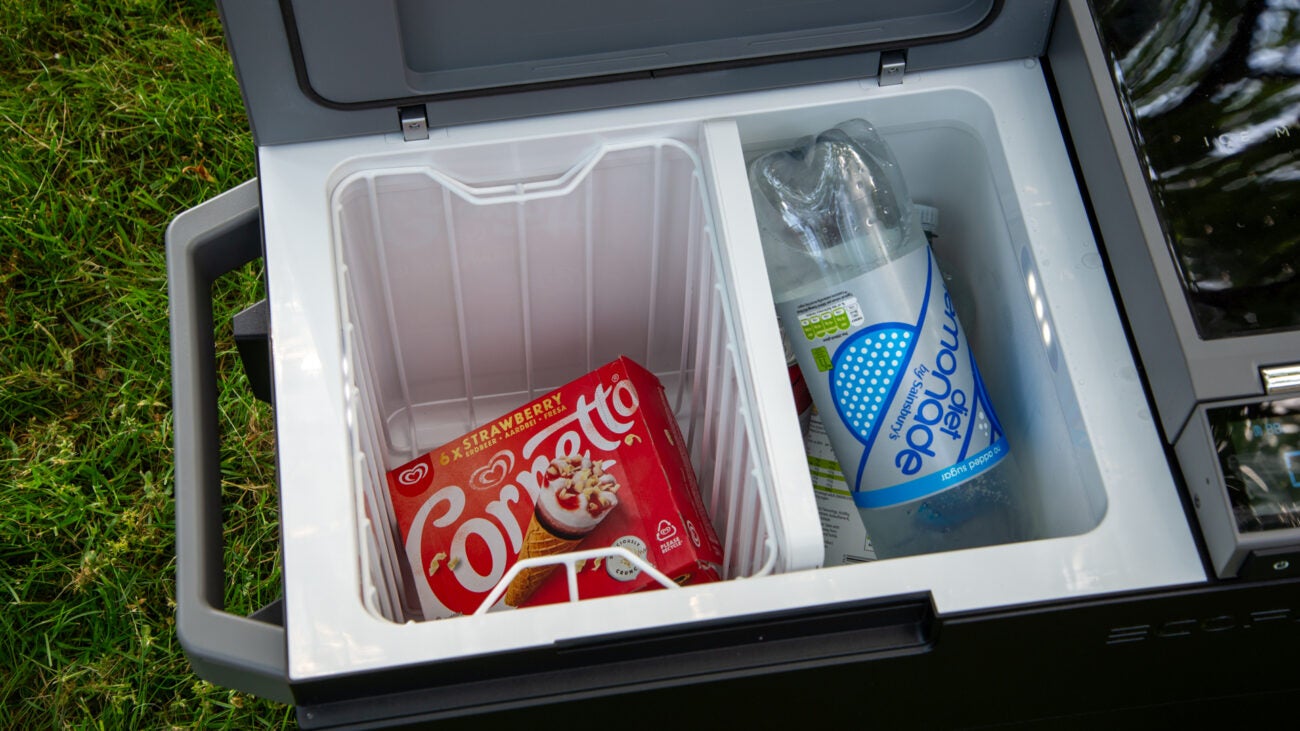

Verdict
Whether you want extra storage space for drinks at a party, you want a picnic companion, or a fridge-freezer for travelling, the EcoFlow Glacier does it all. It has flexible storage space, and can be a fridge, a freezer or both; a useful ice maker; and it can run from an optional battery for off-grid cooling. Great for shorter-term storage of fresh and frozen food and drink, my only real complaint is that the useful handle and wheels set are an expensive optional extra.
Pros
- Flexible internal space
- Can be battery operated
- Integrated ice maker
Cons
- Wheels not included
Key Features
- TypeThis is a portable cooler, which can be powered via mains, car or (optionally) battery.
- Ice makerMakes ice in 20 minutes or less.
Introduction
Whether you’re camping, on a picnic or simply hosting a party at home, having enough cooling for food and drinks can be an issue, unless you have the Ecoflow Glacier, that is. A portable fridge/freezer, this clever contraption can cool, freeze and even make ice.
Even better, it can work off-grid via its battery (chargeable via solar), if you need to go somewhere without power.
Design and features
- One large compartment or two smaller ones
- Integrated ice maker
- App controlled
Looking like a small chest freezer, the Ecoflow Glacier is an attractive little fridge with a 38-litre capacity. It comes with two large carry handles, so it can be moved around the house, or from home to car (and car to camping site), relatively easily.
It’s a slight shame the optional wheels and pull handle aren’t provided as standard, and are a £109 upgrade. If you’re primarily going to use this for picnics and camping, then the wheels seem like an necessity, or you may be better off with the Anker EverFrost, which has this as standard.
Flip open the lid and you get access to the inside. This has just over half the space taken up by a wire basket, with the remainder open up. It’s useful having the wire basket, as I could lift out most of the items, making the fridge easier to carry to its destination.
A total of 38-litres of space is a good amount: it fits a load of soft drinks and beers, if you just want a drinks cooler. I managed to get some 2-litre bottles in there, too, although they need to be put in at a slight angle to get the lid to shut.
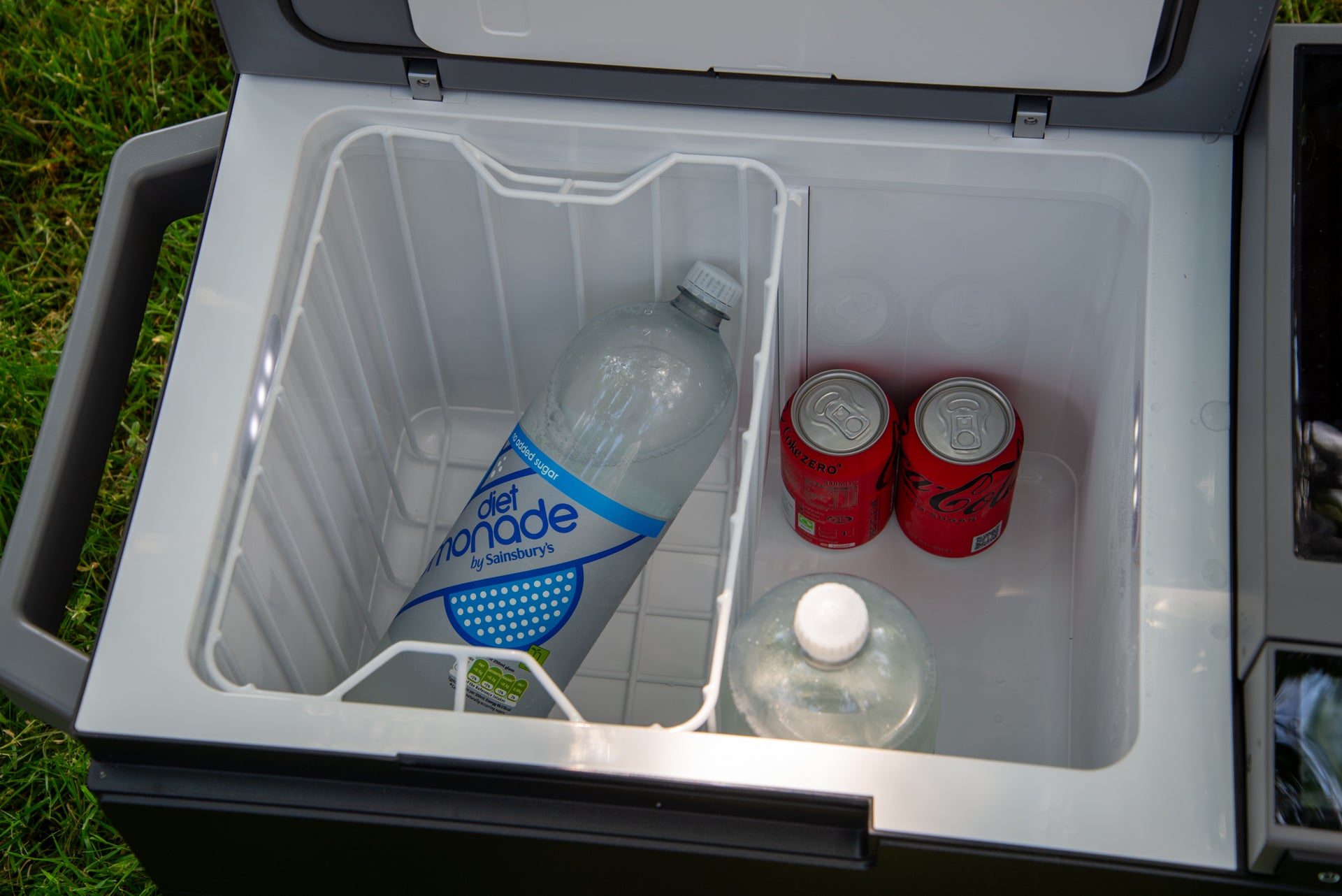
In this mode, the EcoFlow Glacier can set a target temperature using the controls on the front. It can be set between -25°C and 10°C, going between a freezer and a fridge.
However, EcoFlow also provides a divider in the lid, which slots into place next to the wire basket. With this in place, the Glacier has two individually controllable climates, so it can be a fridge and a freezer all at once.
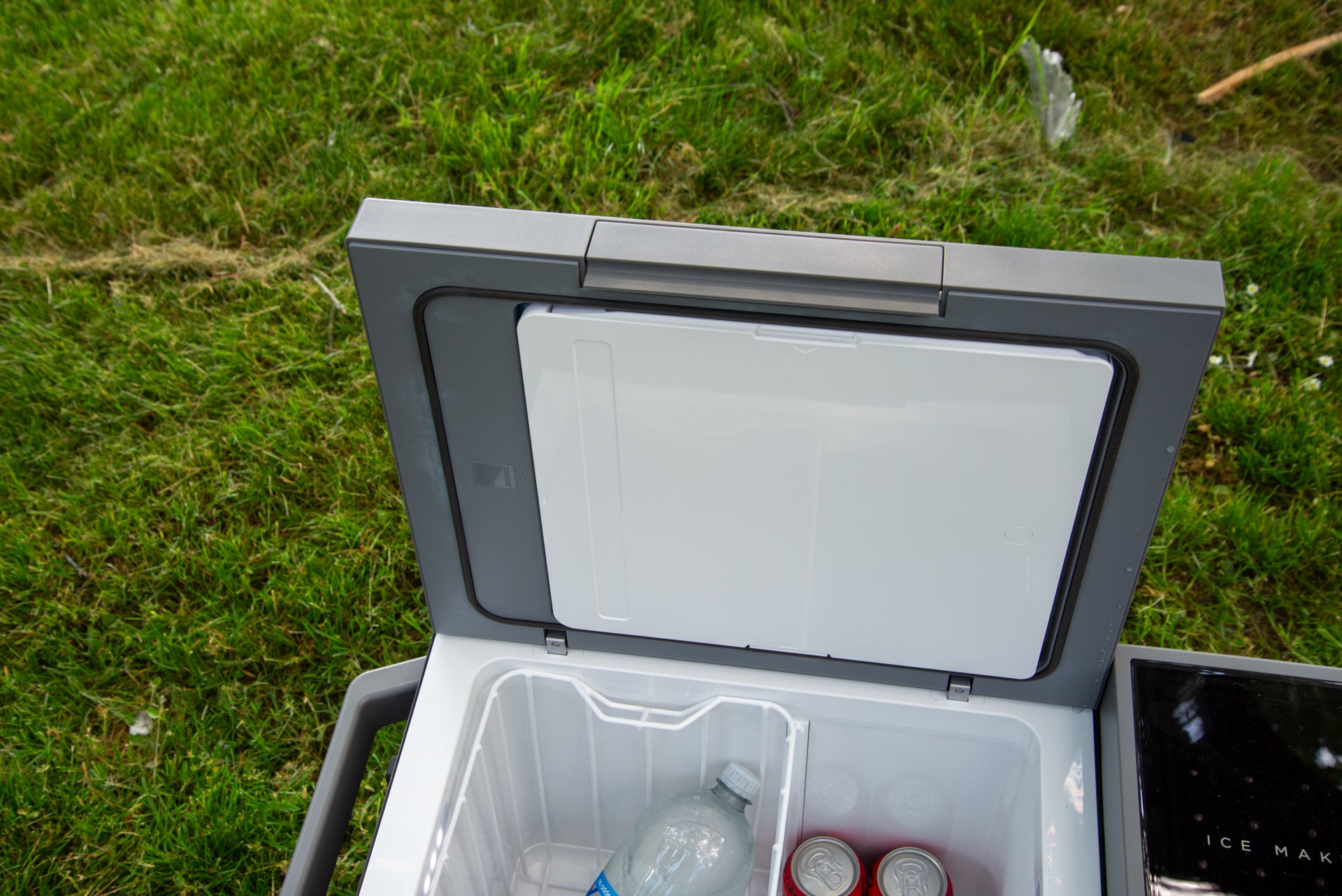
There are some limitations in this mode. First, it’s recommended that the left-hand compartment (the one with the basket) is set as the freezer, and the right-hand compartment set as the fridge. In this configuration, the fridge compartment is up to 15°C warmer than the freezer zone.
Typically, I’d set freezers at -18°C and fridges at 5°C. Here, to compromise and take into account the forced temperature difference, I set the freezer to -11°C and the fridge to 4°C. As such, in this mode, the EcoFlow Glacier isn’t really ideal for long-term storage of food, although that’s not really what it’s designed for.
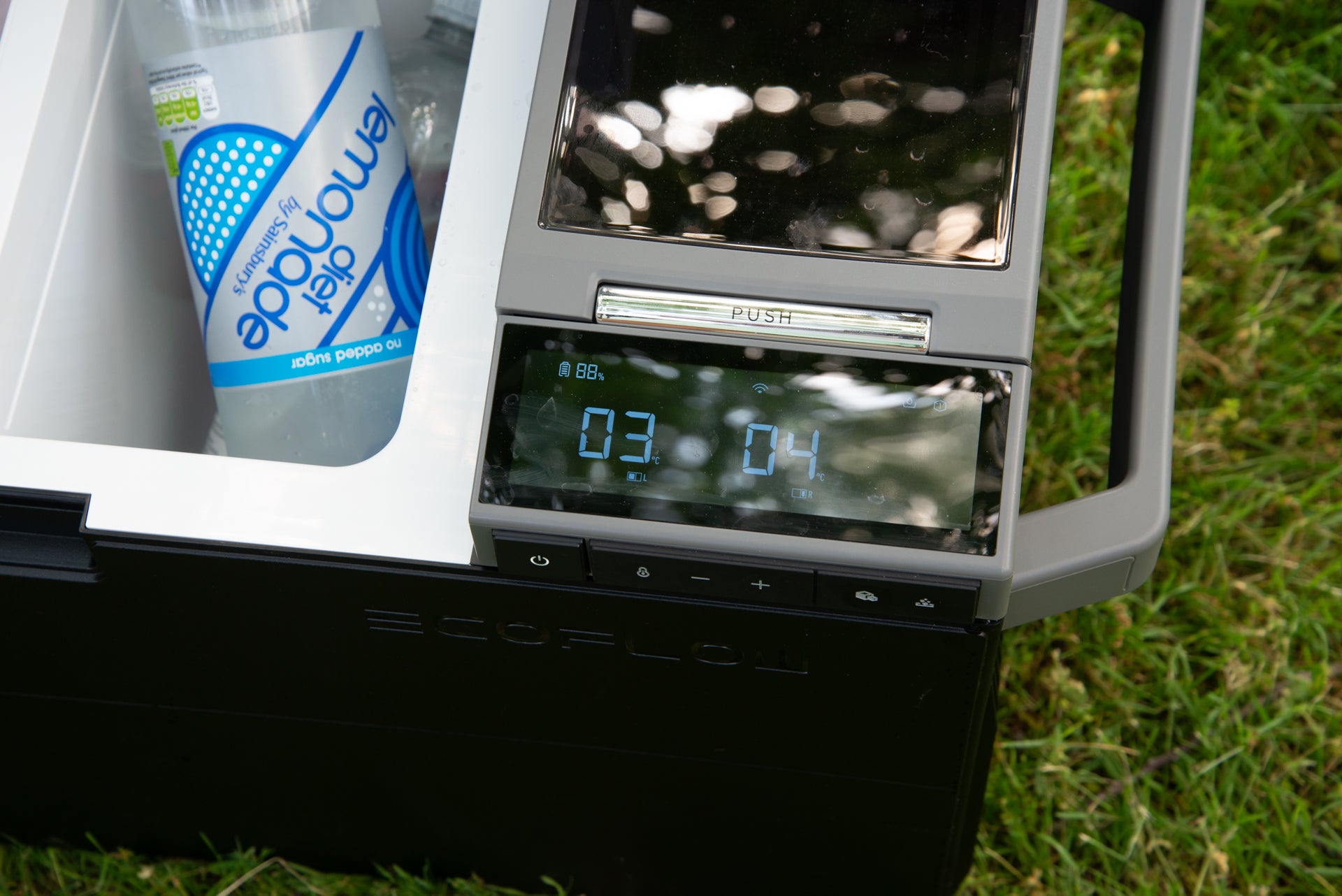
Still, having this flexibility is great. I could pack a load of ice lollies alongside some drinks for a picnic.
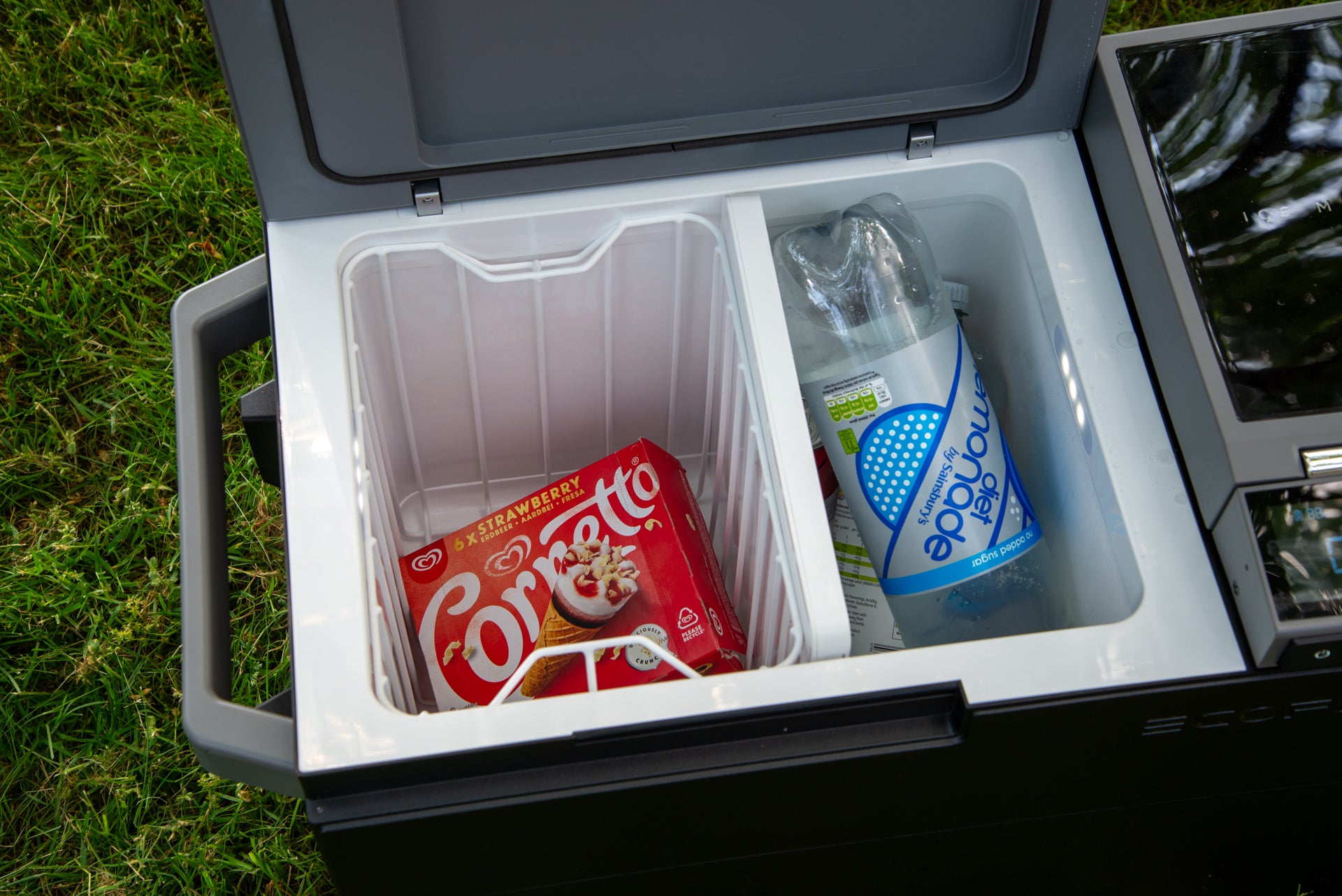
I love the ice maker on the EcoFlow Glacier. Fill the compartment with water up to the line, and then the control panel lets you select large or small ice cubes, which will take between eight and 20 minutes to make, depending on the selected size and temperature of the water.
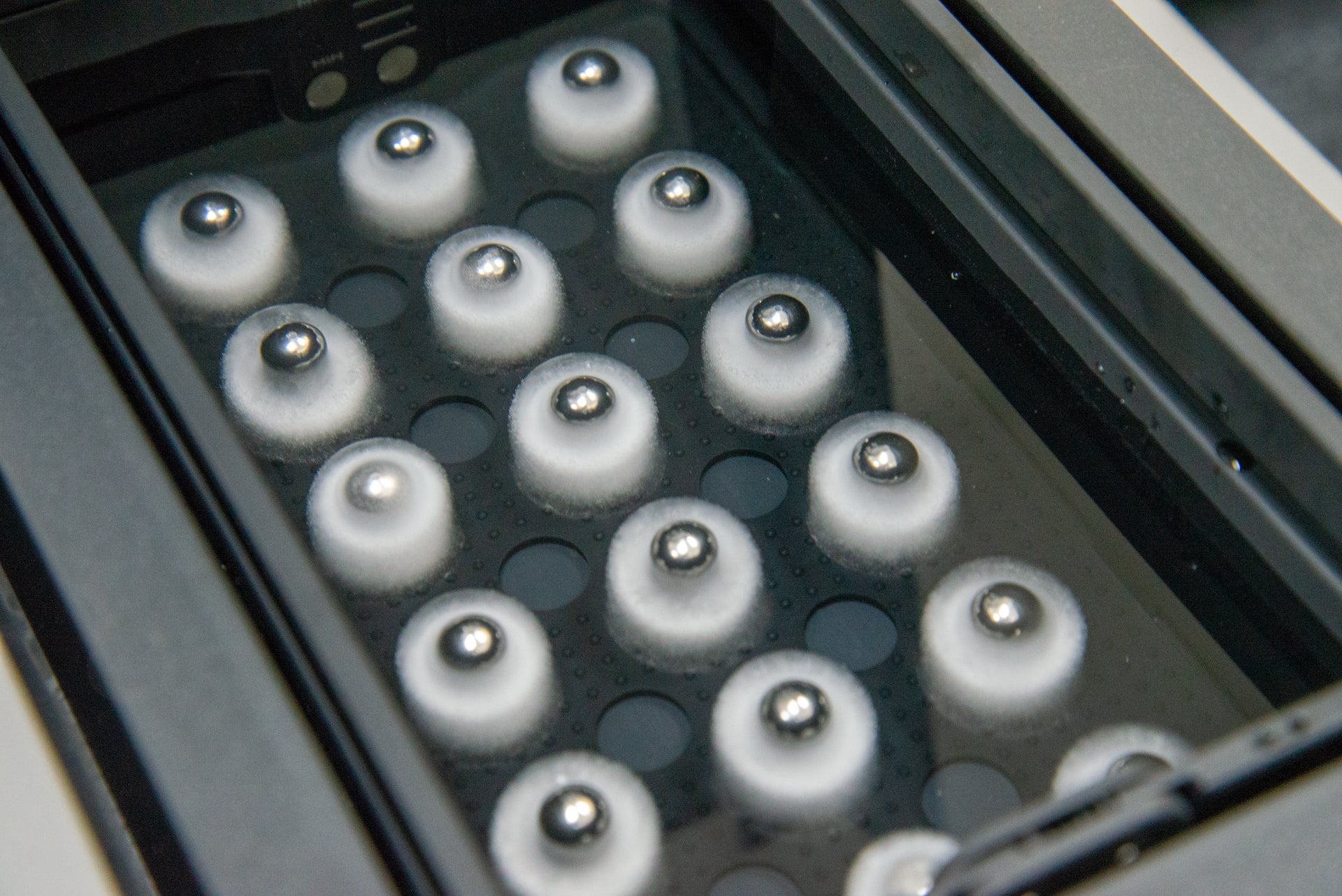
An ice-making session creates 18 cubes, and a full tank of water is enough for four goes. At the end of the process, the ice cubes detach and can be lifted out of the tank, ready for use.
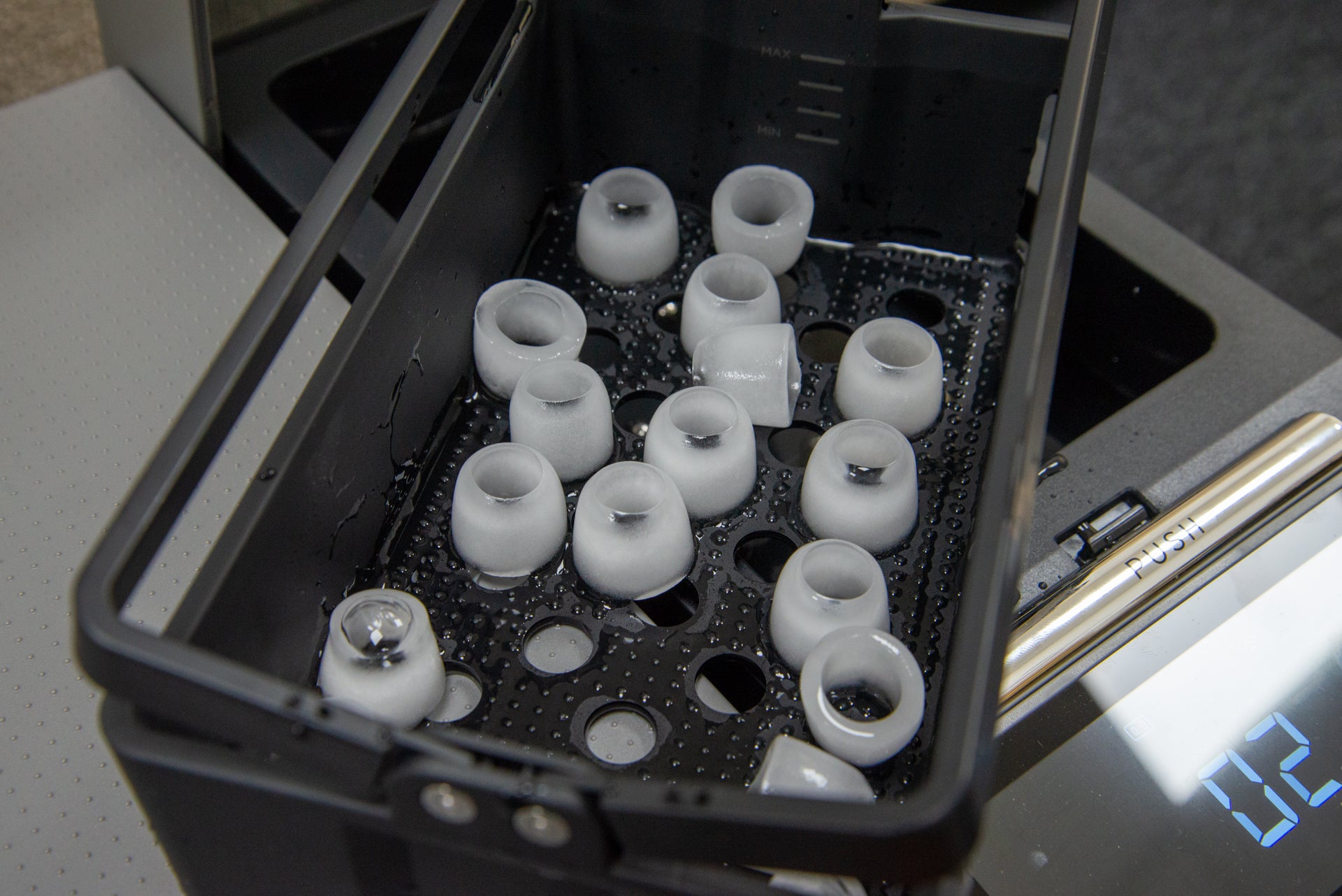
As well as using the physical controls, the EcoFlow Glacier is also app-controlled using the EcoFlow app. This is the same app for the company’s other products, including the EcoFlow Blade robot lawn mower.
From the app, I could control temperatures and turn on the ice-making function, as well as monitor the charging status.
Battery and charging
- Works off-grid with optional battery pack
- Can be solar charged
Although the mains can power the EcoFlow Glacier, it also takes an optional 298Wh battery pack (£299). This can be charged in-situ or via its USB-C 100W input/output. Once connected, the battery can run the EcoFlow Glacier for up to 40-hours, depending on the setting and ambient temperature.
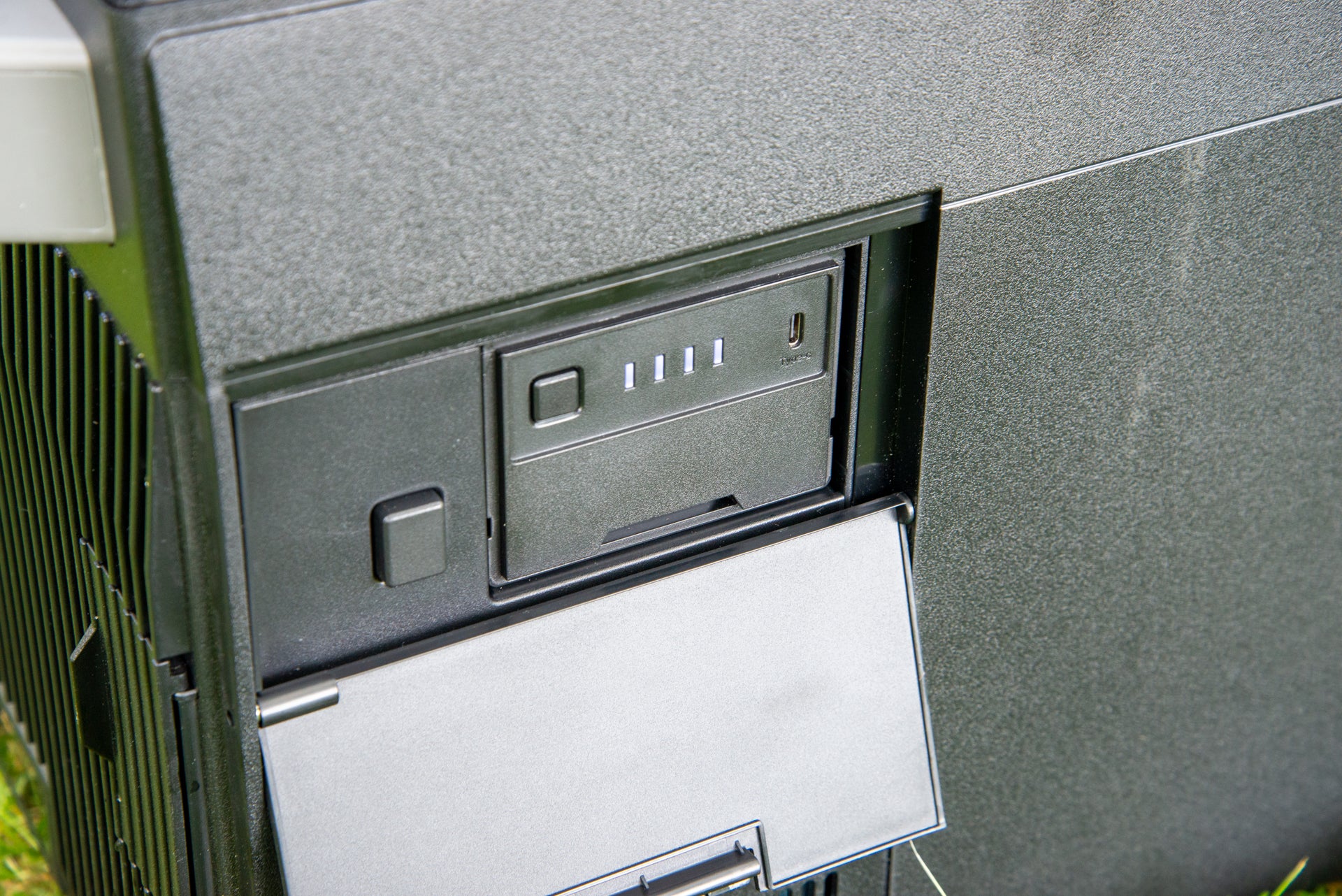
Turn on the freezer function, and battery life will drop down to around 10 hours of use – that’s still enough for a picnic. With the EcoFlow Glacier set to a temperature of 5°C, I found that it lasted past the 40-hour mark, although that was in the Trusted Reviews testing lab, which remains cool all-year round.
Just be aware of using the ice maker in battery mode. I found that making large ice cubes used 8% of the battery.
With the battery installed, the EcoFlow Glacier can be used with solar panels up to 240W. These will power the fridge and charge the battery; if the voltage drops, then the Glacier runs off the battery.
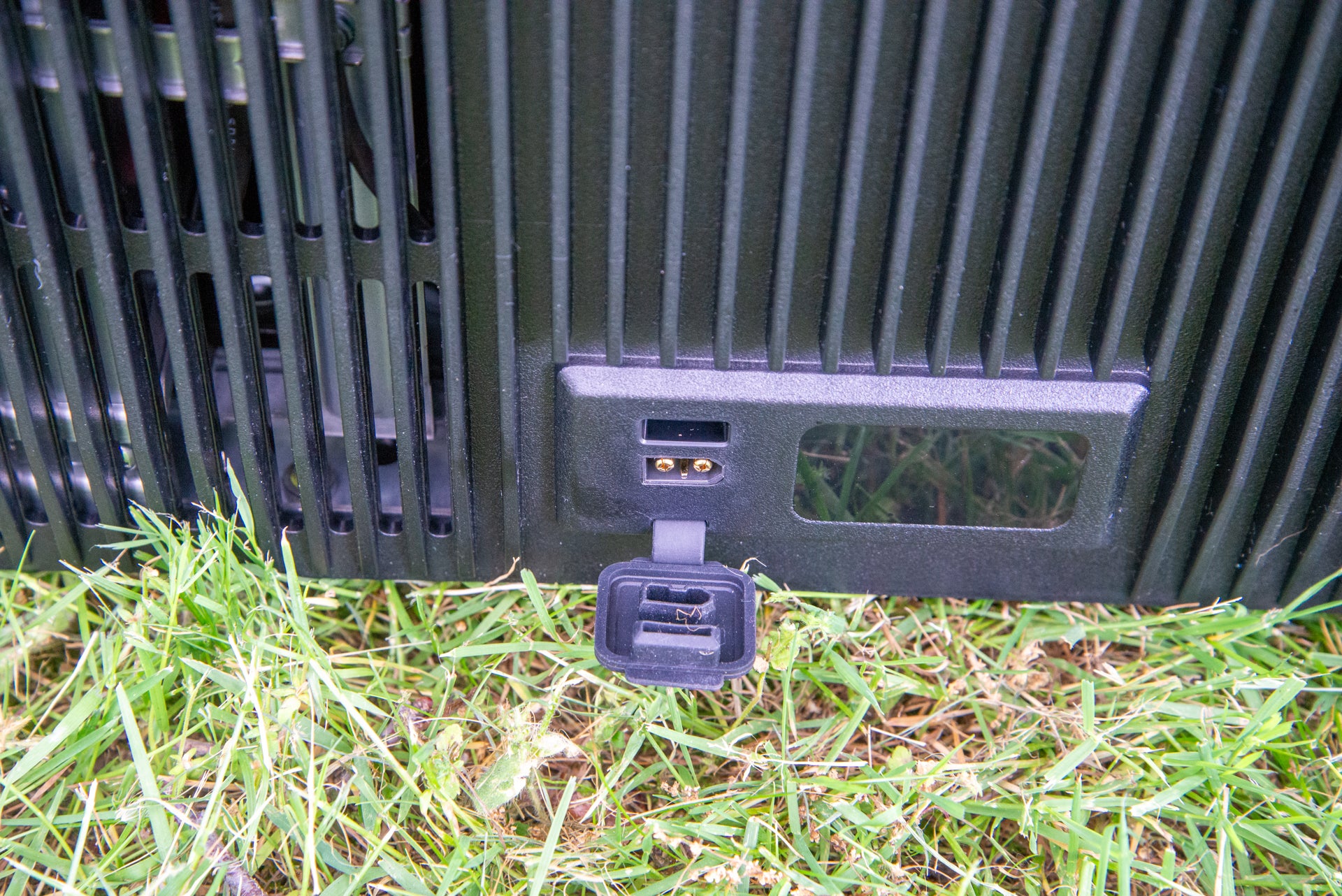
The battery pack is rated to last 800 charge cycles until it hits 80% charge. That’s relatively low compared to more up-to-date battery packs, such as the EcoFlow Delta 2, which will last for 3000 cycles until the battery is at 80% capacity.
That said, the battery in the Glacier is likely to be used a lot less frequently than a battery station. And, while you could use a battery power station to keep the fridge running, the integrated battery is a far neater solution. If you regularly want to use the Glacier away from a power socket, then it’s a decent upgrade.
Finally, EcoFlow provides a car power cable in the box, which lets the Glacier run from a 12V power socket – handy if you want to keep the fridge cool while you transport it in a car or while camping. This set-up can also top-up the battery, but the charging algorithm prioritises keeping the Glacier running first, and charging the battery second.
Performance
- Good for short-term storage
- Slightly higher temperature fluctuations than on a regular fridge/freezer
- Lower running costs in fridge-only mode
Although small and compact, the EcoFlow Glacier isn’t the most efficient fridge freezer. Setting the freezer to -11°C and the fridge to 4°C, I estimated that the Glacier would cost £38.73 a year to run. As a comparison, the Hisense RS818N4TFE fridge-freezer costs around £80.75 a year to run, and it’s got a total capacity of 632 litres: more than 16 times the size of the Glacier.
Run the Glacier as a fridge only, and I found that running costs would drop down to around £38.73 a year.
With the Glacier in fridge/freezer mode, I took temperature readings to see how well temperatures were maintained. On average, the fridge recorded a temperature of 4.7°C (0.7°C higher than the targeted temperature). With a maximum of 11.2°C and a minimum of 2.2°C, temperature variance is a little higher than with a regular fridge. Standard deviation showed that temperatures mostly fluctuated between +/-1.23°C. That’s not terrible, particularly for a portable fridge, which will mainly be used for short-term storage.
With the freezer, I found that the average temperature was -7.8°C, against a set temperature of -11°C. Standard deviation showed that temperatures mostly fluctuated +/-1.57°C. At this level, the Glacier is good for short-term storage of things like ice lollies and short-term food storage, but I’d definitely use a regular freezer for longer-term storage.
Latest deals
Should you buy it?
You want flexible cooling: It’s a fridge, a freezer, or both; can run on- or off-grid; and can be charged via solar or a car. This is a great tool for parties, picnics or travelling.
You want something a bit more rugged with wheels: Without the expensive wheel add-on, this fridge freezer can be hard to move around.
Final Thoughts
Compact and attractive, with flexible storage space and an ice maker, the EcoFlow Glacier is a great companion for parties, picnics and camping.
It can be used on-grid or off (with the optional battery), and charged via solar. If you need a fridge-freezer that you can move around, either for parties or storing food while travelling, then this is a great tool, ideal for shorter-term storage of fresh and frozen food and drink. I do wish that the wheels and handle were included as standard.
How we test
Unlike other sites, we test every fridge freezer we review thoroughly over an extended period of time. We use industry standard tests to compare features properly. We’ll always tell you what we find. We never, ever, accept money to review a product.
Find out more about how we test in our ethics policy.
We test for at least two weeks.
We use temperature sensors to monitor the internal temperature to help us accurately compare models from different manufacturers.
FAQs
Yes, but you have to have the battery to do so.
Not by default, but an optional set and pull-handle are available.

